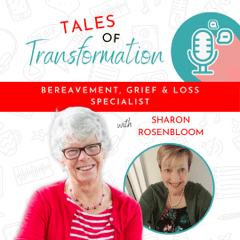-
9AM - 5PM
Recognising the Ongoing Nature of Grief: The 11th Stage
Explore the lifelong journey of grief and the importance of self-care in the eleventh stage.

As we approach the end of our exploration of the 12 stages of grief, we encounter the eleventh stage: recognising the ongoing nature of grief. In this stage, individuals come to understand that grief is a lifelong process and that experiencing ups and downs is a normal part of this journey. In this article, we will discuss the importance of self-care and support during the ongoing process of grief.
Understanding the Ongoing Nature of Grief
Grief is a complex, multifaceted experience that can continue to impact individuals long after the initial loss. It is crucial to recognise and accept that grief is an ongoing process, with fluctuations in emotions and varying intensity throughout life. Acknowledging the ongoing nature of grief can help individuals prepare for and manage the challenges that may arise in the future.
Strategies for Self-Care and Support
- Prioritise self-care: Make a conscious effort to engage in self-care practices that promote physical, emotional, and mental well-being. This may include exercise, meditation, engaging in hobbies, or spending time in nature.
- Seek professional support: If you find that your emotions become overwhelming or difficult to manage, consider seeking support from a mental health professional, such as a therapist or grief counsellor, to help you navigate your grief journey.
- Stay connected: Maintain strong connections with friends, family, and support networks. Share your experiences and emotions with those you trust, and do not be afraid to reach out for support when needed.
- Set healthy boundaries: Learn to set boundaries that protect your well-being, such as limiting exposure to situations or people that may trigger intense emotions or cause you distress.
- Embrace your emotions: Allow yourself to experience and express your emotions, without judgement or shame. Understand that emotions are a natural part of the grieving process and that it is okay to feel a wide range of emotions throughout your journey.
- Cultivate resilience: Develop coping strategies and techniques that can help you manage the challenges and fluctuations of the grieving process. This may involve cultivating a positive mindset, practising mindfulness, or engaging in activities that promote relaxation and stress relief.
Moving Forward
Recognising the ongoing nature of grief is an essential step in accepting and embracing the lifelong journey of grieving. By prioritising self-care and support, you can better navigate the fluctuations and challenges that may arise throughout your grief journey.
In our final article, we will discuss the twelfth stage of grief, focusing on the growth and transformation that can emerge from the grieving process. Remember, there is help available, and you do not have to face this journey alone.
If you’re in need of someone to talk to, don’t hesitate to reach out and contact me.



